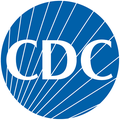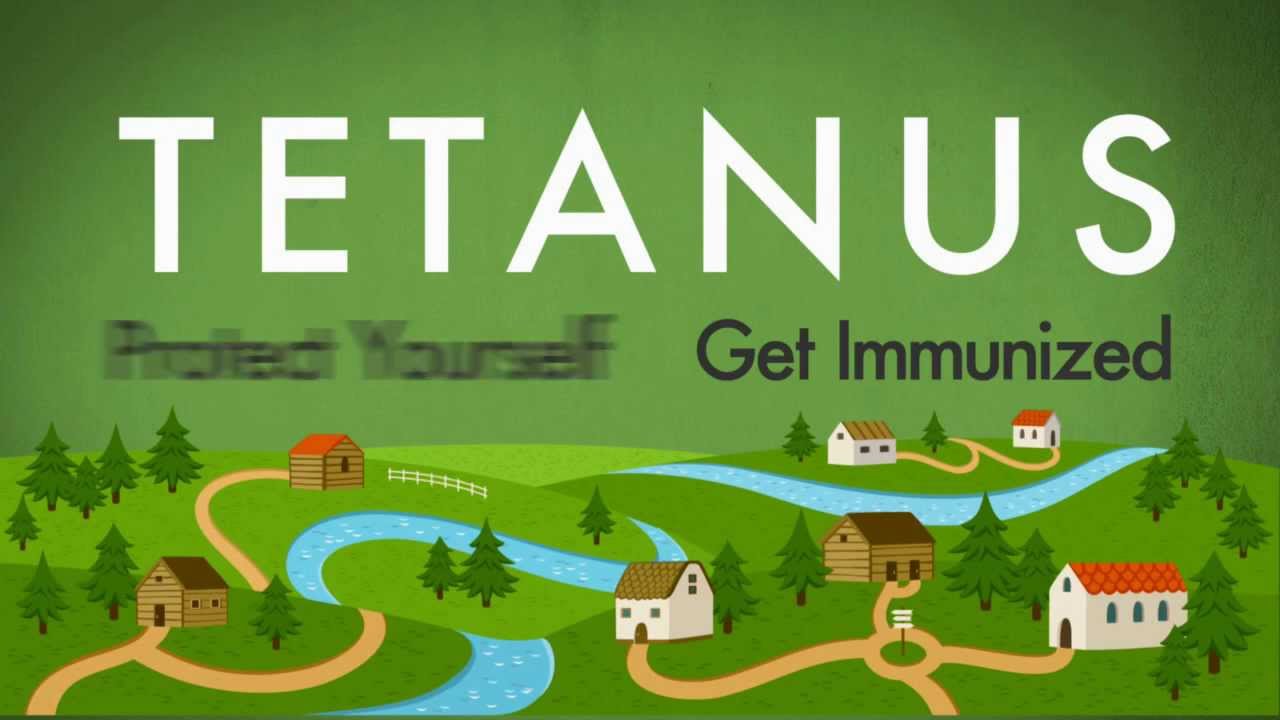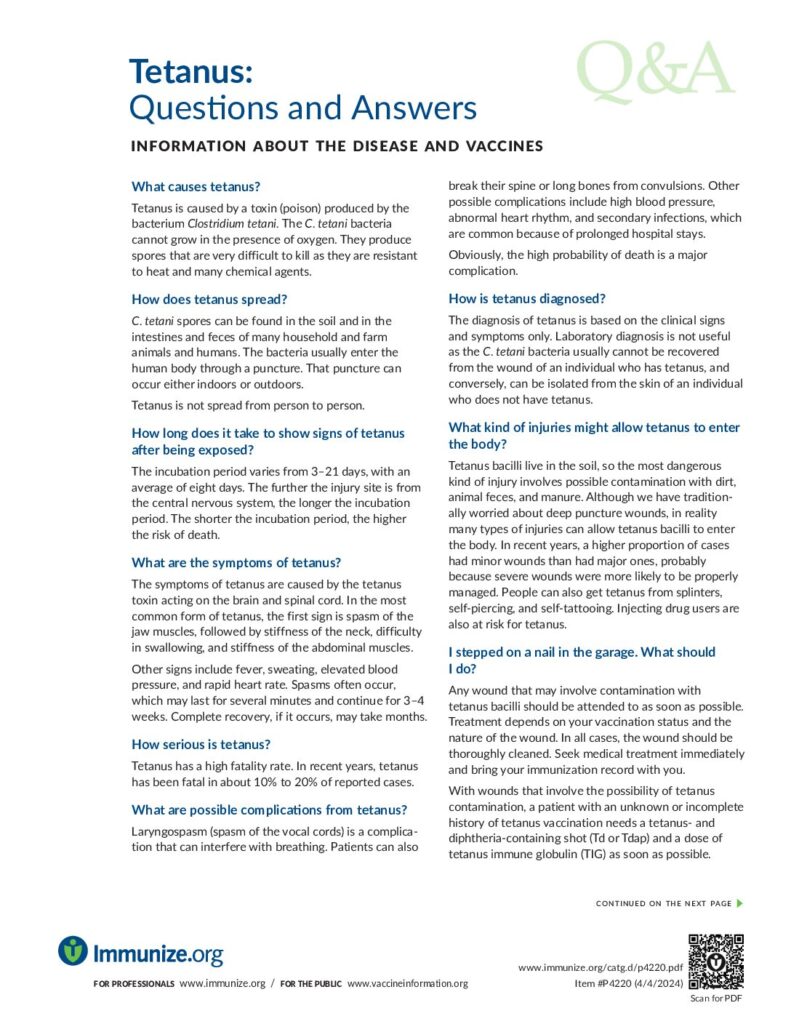Overview
- Tetanus (sometimes called lockjaw) is a serious disease caused by bacteria. The actual disease is caused when the bacteria release a toxin, or poison, into a person’s body.
- Tetanus gets into the body through cuts or wounds. Tetanus can also infect someone in less commonly considered wounds, such as skin ulcers, scrapes, or insect or animal bites.
- Tetanus can cause extremely painful muscle cramps all over the body. This disease can be deadly. In the most common form of tetanus, the first sign is spasm of the jaw muscles, followed by stiffness of the neck, and difficulty swallowing.
- Tetanus bacteria are in the soil, so people who work, garden or play outside can get infected even from a minor injury, such as a puncture from a thorn.
- Vaccination is the most effective step you can take to be protected from this serious disease.
- International Travel: People can be exposed to tetanus anywhere in the world. Travelers should be up to date with this routine vaccine before international travel.
Tetanus Vaccine Schedule
All children should get 5 doses of DTaP (diphtheria-tetanus-pertussis) vaccine, beginning when they are 2 months old. If your child misses a dose or gets behind schedule, make sure they get the next dose as soon as possible. Older children, teens, and adults should receive the Tdap (Tetanus-diphtheria-pertussis) vaccine designed for people age 7 years and older, and after that, a Td or Tdap booster dose every 10 years. Consult your healthcare provider if you have a deep or dirty wound: you may need an additional tetanus vaccine booster dose if it has been more than 5 years since your most recent dose.
RESOURCES
Tetanus: Questions and Answers
Information about the disease and vaccines, from Immunize.org.
Partner Resources
General

Find fact sheets for parents and children, resources, multimedia, and more from CDC.

Five doses of a DTaP shot for children and one Tdap shot for preteens are recommended by doctors as the best way to protect against tetanus. Learn more about meningococcal and vaccines from CDC. A Spanish-language version is also available.

Questions and answers about diphtheria, tetanus, pertussis, and vaccines from the Vaccine Education Center at the Children’s Hospital of Philadelphia.

Basic information about tetanus and vaccines, from the American Academy of Pediatrics
Information about tetanus vaccine and the importance of vaccinating children.
Travel

Information for travelers about vaccines they may need, including Tdap (tetanus, diphtheria, pertussis).
Mother
Tetanus is far more than a “rusty nail” disease.
Read more.Yorkshire Post
After tetanus killed a woman after fall in her garden, her daughter speaks out to raise awareness of what could happen if people are not immunized.
Read more.
Tetanus
Tetanus is a serious and deadly disease caused by bacteria. The bacteria that cause tetanus live in dirt, dust, and soil. Protect yourself from tetanus. Get vaccinated.
People of any age can feel a bit anxious about getting a shot. Some may be so anxious that they avoid vaccination…even when they know it’s important. Learn more about simple ways to help any child or adult feel better and more confident when getting vaccinated.
